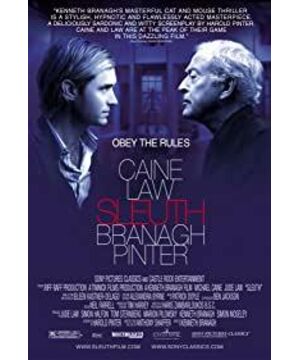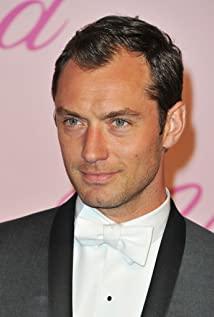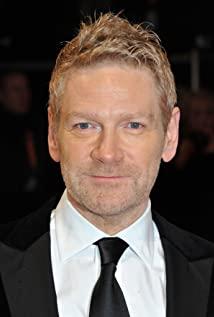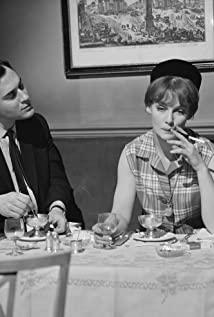In less than 90 minutes of the film, the mirror (or reflective mirror) appeared many times, sometimes the front of the character, sometimes the back, sometimes one person, sometimes two people, sometimes a clear image, and sometimes distorted Deformed.
Some clues can be found in Lacan’s theory of mirror images in the discussion of the image of the mirror and the hidden themes behind it.
Lacan believes that after 6 months of birth, humans have acquired the ability to recognize self-integrity in the mirror. Although the baby’s perception and identification of images is illusory in nature, it is accompanied by this process. Full of joy and happiness. It gives babies a coherent, coordinated sense of identity, and the resulting expectations and promises of correcting themselves and making images appropriate. As a result, the baby establishes a desire relationship with his body. What is manifested in this desire relationship is the narcissistic nature of the self. Out of the need of competition, there is not only an attachment relationship between infants and self-images, infants and others, but also an aggressive and competitive nature. Lacan believes that “aggressiveness is a tendency that is related to a confirmation method that we call narcissism. This confirmation method determines the structure of the person's self and also determines the structure of the world's unique memory." .
There is no doubt that the only two male characters in the film initially possessed a sense of complete unity of the self in the mirror and the accompanying narcissism and aggression. The older Andrew Wyke (played by Michael Cain) was very oppressive in his way of appearance. When the young Milo Tindle (played by Jude Law) drove into Wyke’s manor, Wyke was watching his whereabouts through a surveillance screen indoors. At this time, Wyke is an invisible watcher, and is in a dominant position in the upcoming battle. When Milo entered the room, Wyke began to show off to the other person. He revealed his identity as a well-known detective writer (here Wyke is called the Master of menace, it is hard to say that it is not a self-mockery by Harold Pinter himself). For this, Milo responded with his ignorance (never heard of them), even more bluntly. I'm fucking your wife, and she's fucking me, it's mutual. If the characters in the film set their own "three games" It is the narrative clue of the whole film as the vertical axis, so the dialogue before the opening of the "game" has actually laid the psychological foundation of the characters on the horizontal axis-Andrew Wyke, as a well-known writer who has known the Queen of England, has wealth, prestige, and loftyness. The social status of Milo Tindle, as an influential actor, has a young appearance, a body, and more importantly, he also has Wyke’s wife Maggie. These are the foundations of the narcissism of the two, and they have also become them. Reasons for mutual intrusion.
The first time Wyke’s image appeared in the mirror was in the "first game". He suggested to Milo that the other party pretends to break into the villa and steal the jewels in the safe, so that Wyke can get huge compensation and Milo can also. Take the jewelry and walk away with Maggie. Under the temptation of heavy money, Milo was tempted. Then the two walked into a spacious room with a fireplace to discuss the feasibility of the plan. Milo stood in front of the burning wall fire and asked Wyke why he was willing to give his wife to him. The camera shot back to Wyke. He paced and calmly said: I have no feelings for Maggie for a long time. She is an adulterous woman and should be stoned. die. At this time, the mirror on the wall behind Wyke reflected his multiple mirror images, layered on top of each other and rippled away, as if countless Wyke existed in one space at the same time. At this moment, Wyke stands outside the mirror, and the countless images of himself in the mirror not only prove the integrity of his body, but also expand his sense of self-identity to the borderless. In other words, they confirm, or even complete. His narcissism. As a result, in the first round, Wyke frightened Milo to death with a cunning strategy, and he won an overwhelming victory. He went downstairs, poured himself a glass of wine, and stared at himself in the mirror as if he admired the work he had just finished. If the eyes are concerned with the order of the symbol system, then the gaze pursues a kind of narcissistic fantasy-for each object, it constitutes the object driven by the subject's gaze desire. And Wyke's desire-driven object is himself.
In the second round, the mirror appeared again, this time showing the faces of Milo and Wyke. Wyke didn't expect Milo to show up in his home again, and pretended to be Inspector Doppler and utterly talked about himself. Milo, who had removed his mask, threatened Wyke with a gun, forcing him to wear all the jewels in the safe and pretend to be a female in front of the mirror. Closer, Milo intimidated Wyke tightly from behind, strangled his neck with a necklace, and kept saying you look so charming, sweetheart. Cut into the mirror, Milo and Wyke entered the mirror, in the same mirror image, Half of it was Milo who treated Wyke as a female insult, and half of it was the pain on Wyke's face, both of their faces were distorted in the mirror. It can be said that this mirror not only symbolizes the deformation of Wyke's perfect self-identity due to external forces, but also symbolizes Milo's outburst in order to consolidate narcissism. Milo stared at himself in the mirror, and the driving object of his self-desire became the only purpose of his behavior that was to defeat his opponent Wyke, tease Wyke, humiliate Wyke, and avenge Wyke, thus maintaining the unity of his original narcissistic image. .
Entering the third round, the mirror itself shattered. Wyke brought Milo into the guest room and asked him to stay with me. He offered generous terms, claiming that as long as Milo left Maggie and stayed with him, he could take him around the world and even open a theater for him. Milo and Wyke were separated on either side of the big bed, and a mirror behind Milo reflected the two of them. The difference from the previous two times is that this mirror is not a complete reflector. It is a mosaic of many mirrors of different sizes. Therefore, images of people of different sizes and shapes appear in the mirror. They are broken, real and illusory, and become illegible with the actions of the characters. Undoubtedly, the characters have entered a state of disorder at this moment. Both in terms of sexual identity (both protagonists have already played female roles in the "game") or sexual orientation (both have shown homosexuality), they have already deviated from the original intact self in the mirror. The corresponding relationship between people has also changed from the original rival to the lover. This disordered mental state is reflected through the incomplete mirror, but the two protagonists still don't know it. They are like two trapped beasts imprisoned in a delicate cage, tempting, laying out, seduce, biting each other, and finally destroyed.
It can be said that Slueth is an excellent "stage drama film". Because the story itself takes place in what Bazin calls "a concrete limited, enclosed and enclosed space", and the single and lack of three-dimensional setting adds to the opacity of the drama. But I do not intend to discuss the artistic relationship between the original stage play and the two films. I want to point out that by borrowing various stage techniques, Sleuth overcomes the centrifugal force of the movie screen and creates a centripetal, opaque, and human-based subject. Narrative space. The redundant narrative clues or background explanations are omitted here. Whether it is theatrical setting, props, or cinematic lens language or soundtrack, they have become signifiers in a semantic system, and they collectively revolve around a goal—— People-are organized. They are combined with human actions, human language, and human demeanor and behavior to form a puzzle. When the last one is over, the puzzle suddenly emerges, leaving two ghostly male characters as an excellent model for psychoanalysis.
View more about Sleuth reviews










